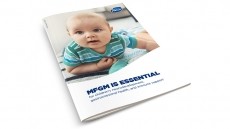New ASA rulings target CBD for kids “grey area”

The ASA identified CBD retailers Excite For Life and CBD Life for claiming CBD is safe for children on their websites, leading the UK’s self-regulatory organization to uphold rulings and instruct the sites to remove misleading advertising.
However, according to Dr. Mark Tallon, managing partner of food law consultancy Legal Foods, CBD for children is a grey area in terms of advertising—while the Food Standards Agency (FSA) issued consumer guidance in October 2023 emphasizing safety concerns, this guidance is not legally binding.
Legal opinion
As Dr. Tallon explained to NutraIngredients, current UK regulations on marketing CBD products toward children focus on two main aspects: marketing and safety.
The regulations limit marketing related to health claims since there are no approved health claims for children. Additionally, CBD products classified as food supplements must include a warning label stating, "Keep out of reach of young children".
However, this requirement does not explicitly prohibit the marketing of CBD foods to children, as long as no specific health or nutrition claims are made.
“Legally, there is no direct restriction on CBD products for children, but these products are classified as "novel foods" under UK and EU law,” Dr. Tallon said, explaining that while some regions permit them, this novel classification renders them illegal in the UK and EU.
Excite for Life
The ASA ruled that Excite For Life had engaged in misleading advertising on its website by having a "CBD For Children" section, suggesting CBD was without risks.
The ASA identified that implying CBD was safe for children conflicted with the FSA advice against CBD use for those under 18. The site also claimed CBD could "balance the well-being" of children, violating regulations that require specific authorized health claims, which do not exist for CBD.
The ASA also found that the website incorrectly stated a daily maximum of 70 mg for adults, while the FSA's updated limit is 10 mg.
The company claimed it had been unaware of the FSA guidance advising against CBD use for vulnerable groups, including children under 18, and has since removed related product categories and references.
It also responded by saying it followed the initial recommended CBD consumption limits, which were 200 mg per day for adults, which were later reduced to 70 mg in 2020, but was unaware of the latest advice recommending a 10 mg daily limit. The company noted this was "precautionary advice" without evidence of an acute safety risk.
CBD Life UK
The ASA also ruled that CBD Life UK had made misleading claims on its website about CBD consumption by children and the recommended daily CBD intake for adults.
The website suggested that CBD was suitable for children and cited an outdated daily intake recommendation of 70 mg for adults.
The ASA found these claims misleading because the FSA advises against CBD for children under 18 and recommends a maximum daily intake of 10 mg for healthy adults as of October 2023.
CBD Life UK acknowledged that the information was outdated, removed the claims and began a compliance review.
Legal repercussions
As Dr. Tallon said that the legal repercussions for companies implying CBD is safe for children in advertising depend firstly on whether it can be proven that the CBD product is unsafe for children, and secondly, whether there is evidence of actual or potential harm.
If harm is proven, companies could face financial and criminal penalties under statutory and private law, with enforcement varying by jurisdiction.
To navigate conflicting regulations between different regulatory bodies, such as the UK's FSA and other health agencies, Tallon advised that companies advertising CBD products should seek expert guidance on state laws and practical market realities, considering each state's unique food safety regulations.
Legal risks for citing outdated or conflicting information depend on the severity of the breach, the number of consumers misled and the enforcement authority involved. Penalties can range from brand damage and fines to criminal prosecution.
Currently, making health-related claims about CBD in the UK or EU is illegal. For an approved claim, companies would need to submit a health claims application to the relevant authorities (UK or EFSA). Still, this process is currently hindered by novel food regulations.
“Follow alerts freely available on the FSA website and from that seek legal and regulatory guidance from a competent professional to advise on the implications based on a case by case basis,” Dr. Tallon advised.
Speaking with NutraIngredients, Luca Bucchini, managing director of Hylobates Consulting, said that the decisions by ASA should not be surprising, and it's to be expected that ads contrary to official guidance are likely to be considered misleading.
He added that what companies in the UK may complain about is that the CBD approval process has not finished, and there should be legislation in place.
"Official guidance becomes de facto law without the formal process which you would expect," Bucchini said.
He did note that food businesses are expected to keep up with changes in regulations and official guidance, even while the implementation of the new guidance on CBD in the UK, without a proper regulatory process and transition, has been confusing as the guidance does not have the force of a law.
"Of course brands do navigate complexities, but with the understanding that FSA's guidance is likely in practice to take precedence in the UK, and any deviation may require a legal challenges," he noted.
"The ASA decisions are likely to set a precedent given its powers in the UK. The same conflicting decisions can be found across the EU."










